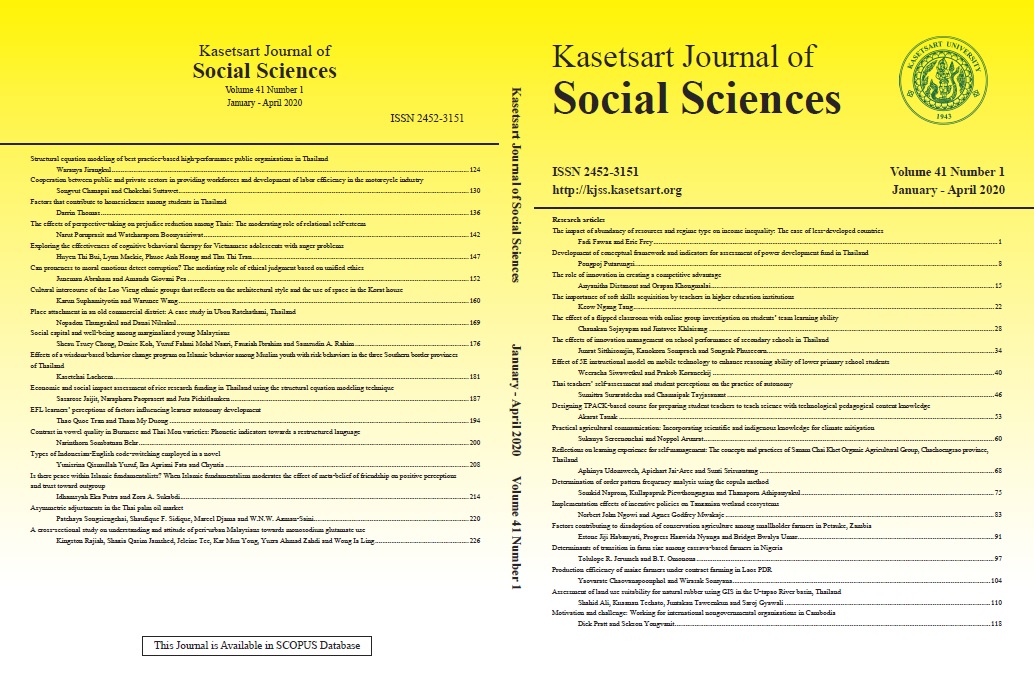Social capital and well-being among marginalized young Malaysians
Keywords:
health behavior, social capital, subjective well-being, youthAbstract
According to social capital theory, the quality of social networks is equally important as the size of the networks. The quality of a social network very much depends on trust and its reciprocity among members. If the shared information is trustworthy, then the group members could generate more resources to combat stress and enhance the well- being of all members of the same network. The objective of this paper was to test the role of health behavior as a mediator of the interaction between generalized social capital (GSC) and subjective well-being (SWB) among young Malaysians. In total, 3,558 youths aged 15–25 years who lived in marginalized communities were recruited for this research using stratified and clustering sampling. The results from the descriptive analysis showed that respondents displayed moderate GSC, health behavior, and SWB scores. Pearson’s correlation analysis showed that the relationship between the GSC and SWB of respondents in this study was significant. These findings suggested that the practice of social capital toward people in general would contribute to a higher level of SWB. The results from the regression analysis suggested that health behavior acts as a partial mediator between the interaction of GSC and SWB, which means that the SWB of the youths is influenced by both GSC and health behavior. These findings imply the need to promote activities that could strengthen the elements of trust and their reciprocity toward people in general, as well as promoting health behavior among marginalized young people. Future research could examine programs that promote social capital toward the general population and health behavior that strengthens the SWB of young Malaysians.
Downloads
Published
How to Cite
Issue
Section
License
Copyright (c) 2019 Kasetsart University

This work is licensed under a Creative Commons Attribution-NonCommercial-NoDerivatives 4.0 International License.
This is an open access article under the CC BY-NC-ND license http://creativecommons.org/licenses/by-nc-nd/4.0/










